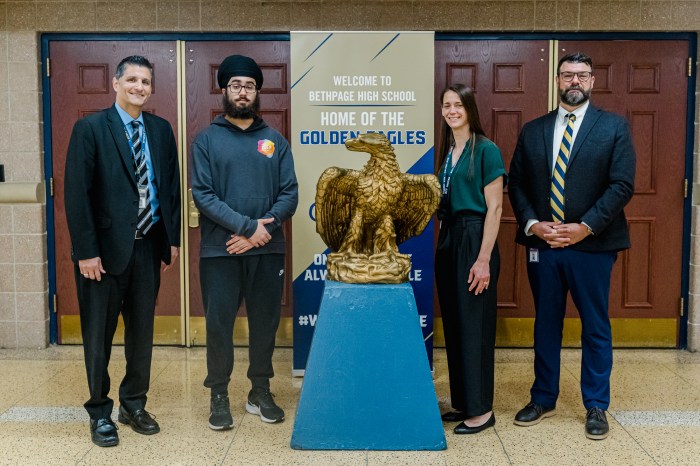A local elected official is pushing a federal agency to allow a woman from the Philippines to enter the county and perhaps save an Old Bethpage woman’s life.
Congressman Steve Israel called on the U.S. Citizenship and Immigration Services to expedite the review and consideration of a humanitarian parole case for Caroline Dela Cruz, who wants to donate her kidney to Esther Slubski, who suffers from end stage renal disease.
Dela Cruz, a friend of the Slubski family, was found to be a match for her friend, but has been denied a nonimmigrant visa multiple times. This has prevented Cruz from traveling here to donate her kidney to Slubski.
“Esther Slubski is a New Yorker, a mom, a former architect and now the victim of end stage renal disease. The good news is that her friend, Caroline Dela Cruz, has offered to donate a kidney to save her life,” said Israel. “However, she has been denied a visa to the United States. This is a common-sense decision that will save a life.”
Prior to her renal disease diagnosis, Slubski had accompanied her son as he traveled extensively for business, including to the Philippines. While there, she met Dela Cruz and the two became fast friends. The two women remained in touch via email, and when Slubski was diagnosed with end stage renal disease, Dela Cruz did not think twice about getting tested to see if she could donate her kidney.
“My offer to donate one of my kidneys to Esther is purely voluntary on my part,” said Dela Cruz. “It was a straight forward decision based on what I have experienced during and after my brother’s transplant, and also because of the relationship I have developed with Esther, whom I consider close to my mother. I am certain that I would be able to extend her life once she receives my kidney, the same as my elder brother has extended his life.”
Her tests in the Philippines confirmed she was a match to donate. The analysis was then sent to the Mayo Clinic, which confirmed the match. In addition, the clinic did psychological testing to ensure that Ms. Dela Cruz was mentally and emotionally suitable to be a donor, which she was deemed to be. The Mayo Clinic also informed the family that it is their policy to ensure the kidney donor brings a close family member as support.
Dela Cruz went to the U.S. Embassy in Manila to obtain a visa for her and her husband. Unfortunately, she was denied three times, and her husband was denied twice.
Humanitarian Parole is the final option to get Dela Cruz and her husband to the country. Israel worked with the family to send in the application last week, and he is now calling on the agency to expedite review and consideration of the case.
End stage renal disease is when the kidneys are no longer able to function at a level to support the body’s day-to-day activities. It can only be treated with a kidney transplant or through dialysis. Each case has a suggested course of action, and in Slubski’s case a transplant is recommended by her physicians.
“It has been a relatively short journey since I was diagnosed with end stage renal disease last summer at the Mayo Clinic, but an intense time filled with uncertain hopes for a positive resolution to my disease,” said Slubski. “These hopes started to become a reality when Caroline, who lives in the Philippines, offered to be a kidney donor and we were found to be a match. What should have been an easy process of obtaining a visa for Caroline and her husband from the U.S. has become be a nightmare of four unreasonable rejections. Time is, now, moving very fast. I thank Rep. Israel for his invaluable interest, guidance and hope in this last attempt to bring Caroline de la Cruz to me through humanitarian parole.”


































